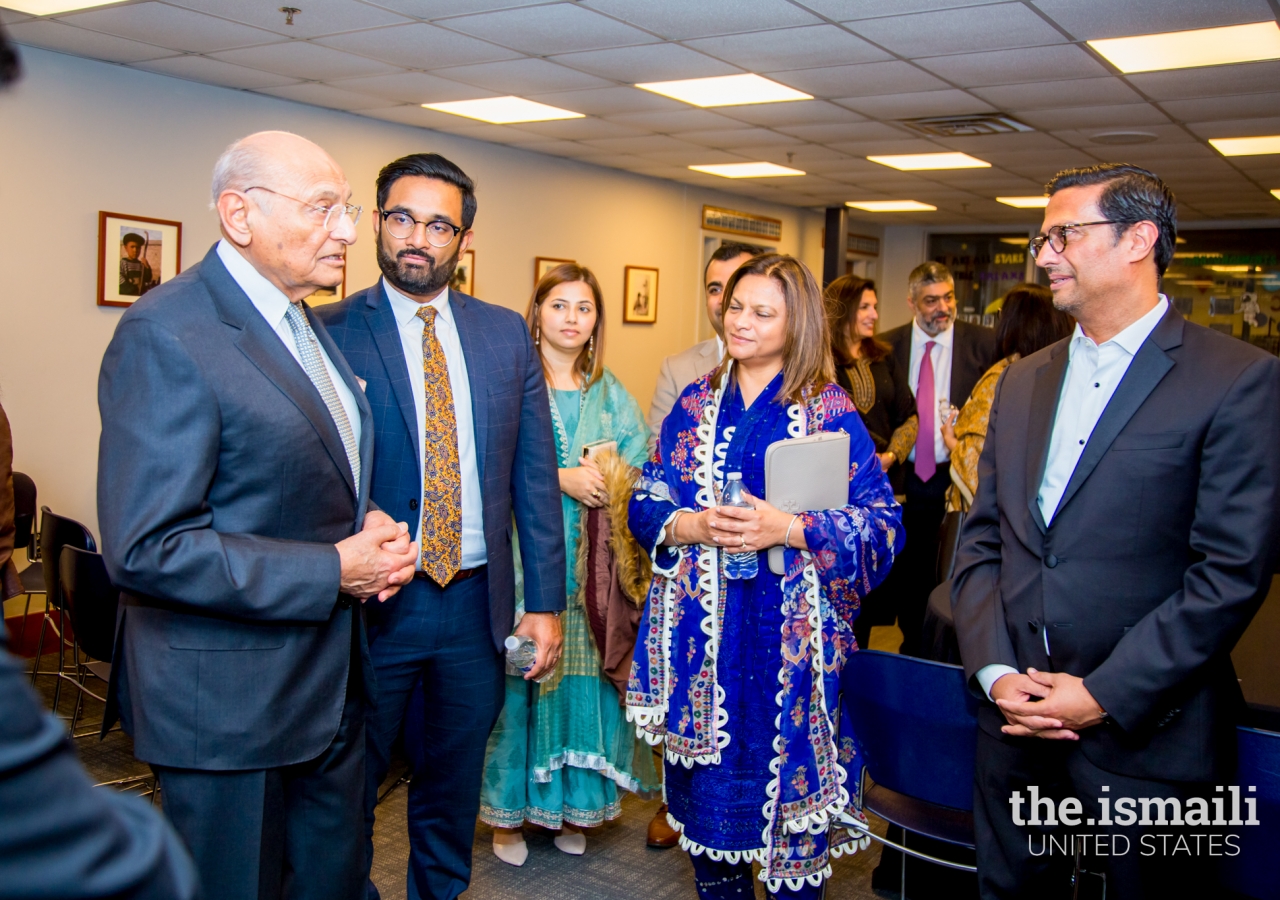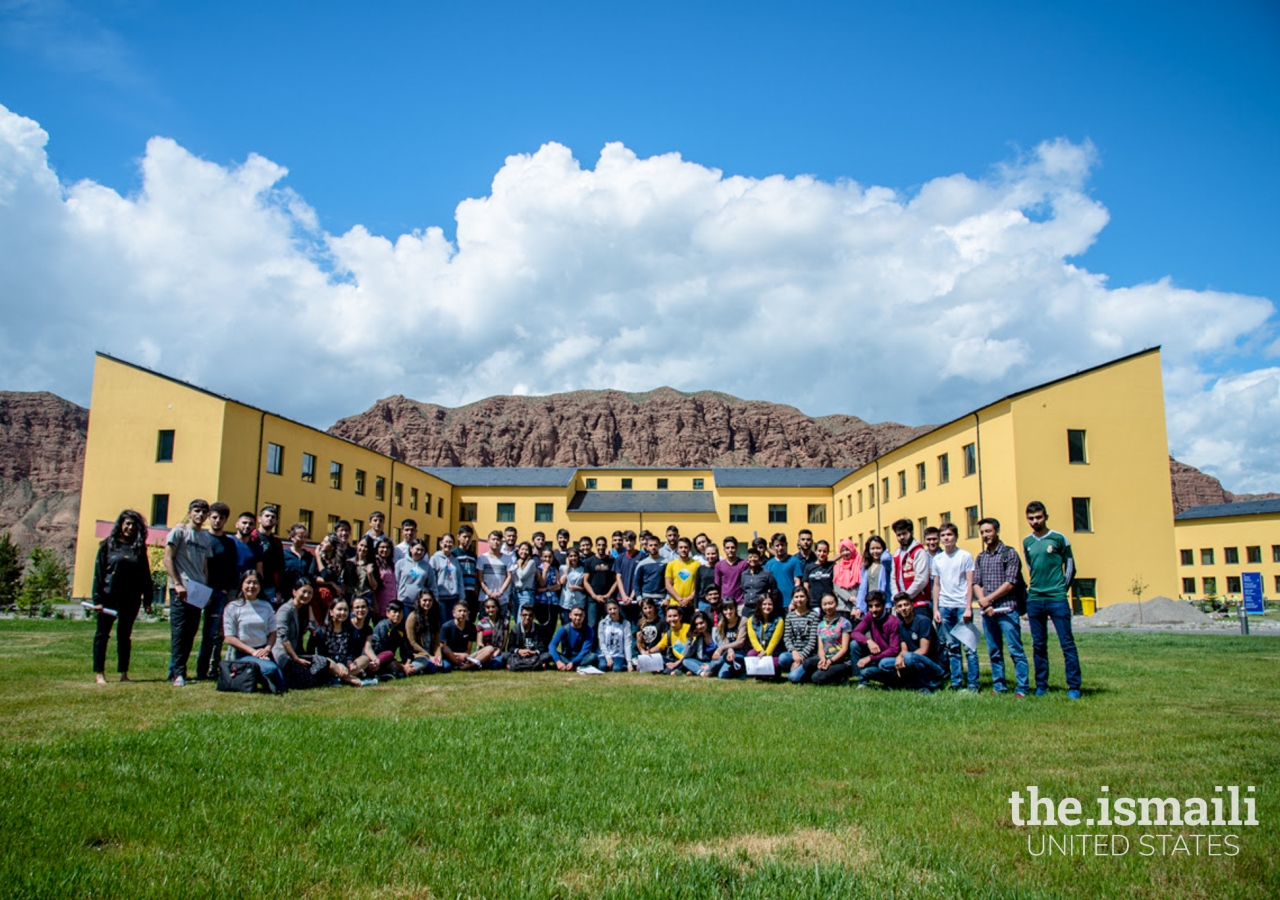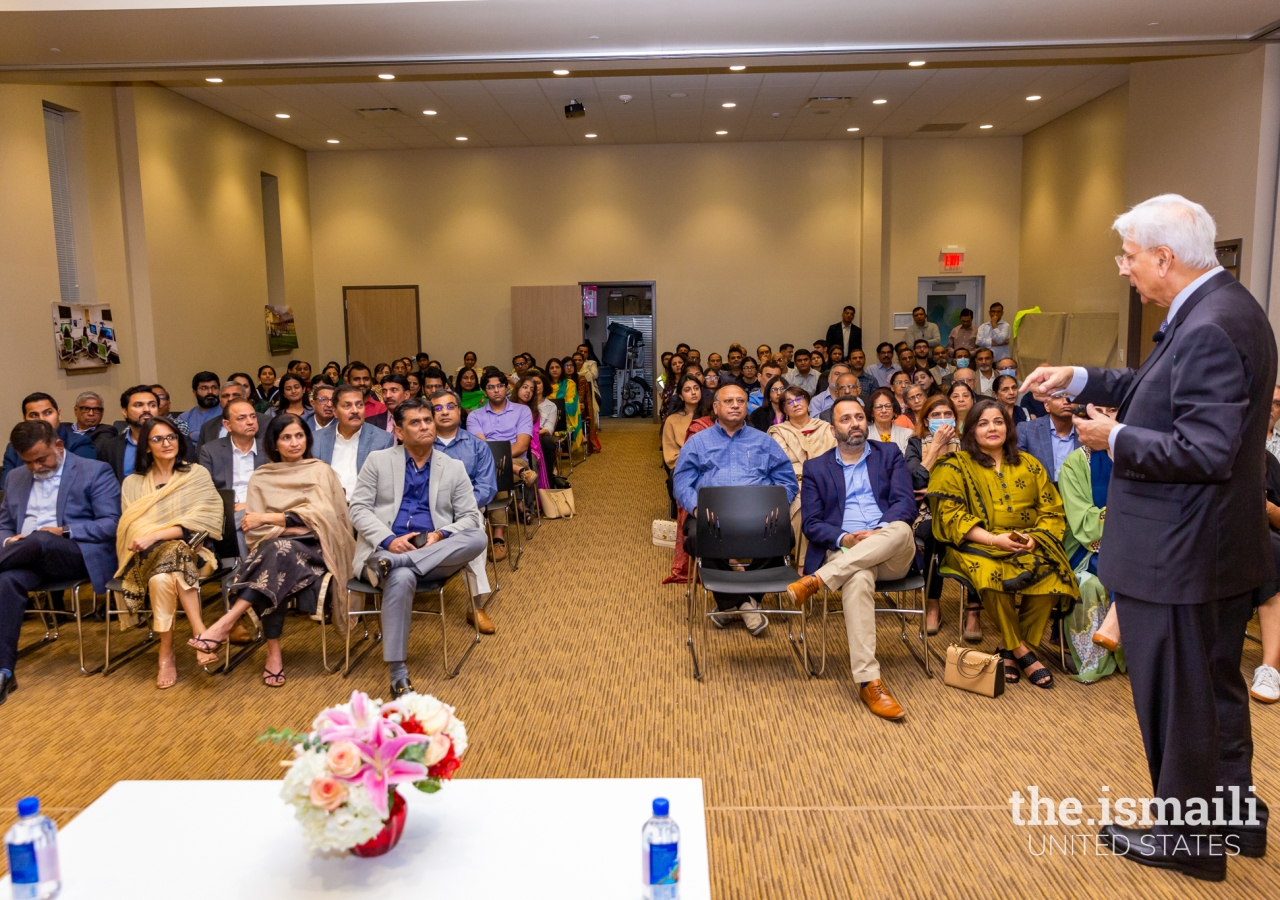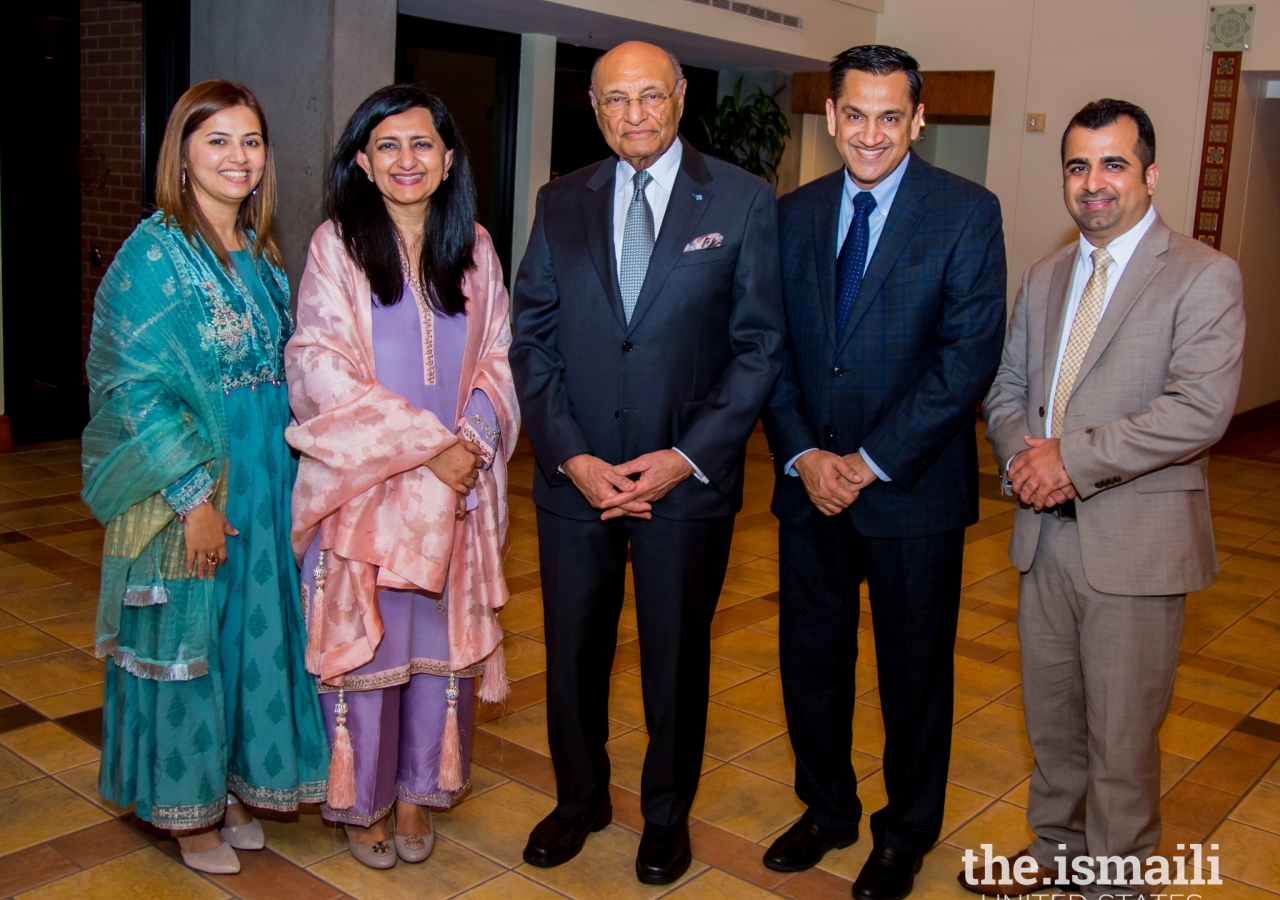Dr. Shamsh Kassim-Lakha with moderator Shaida Adatia at Spring Jamatkhana, Houston.
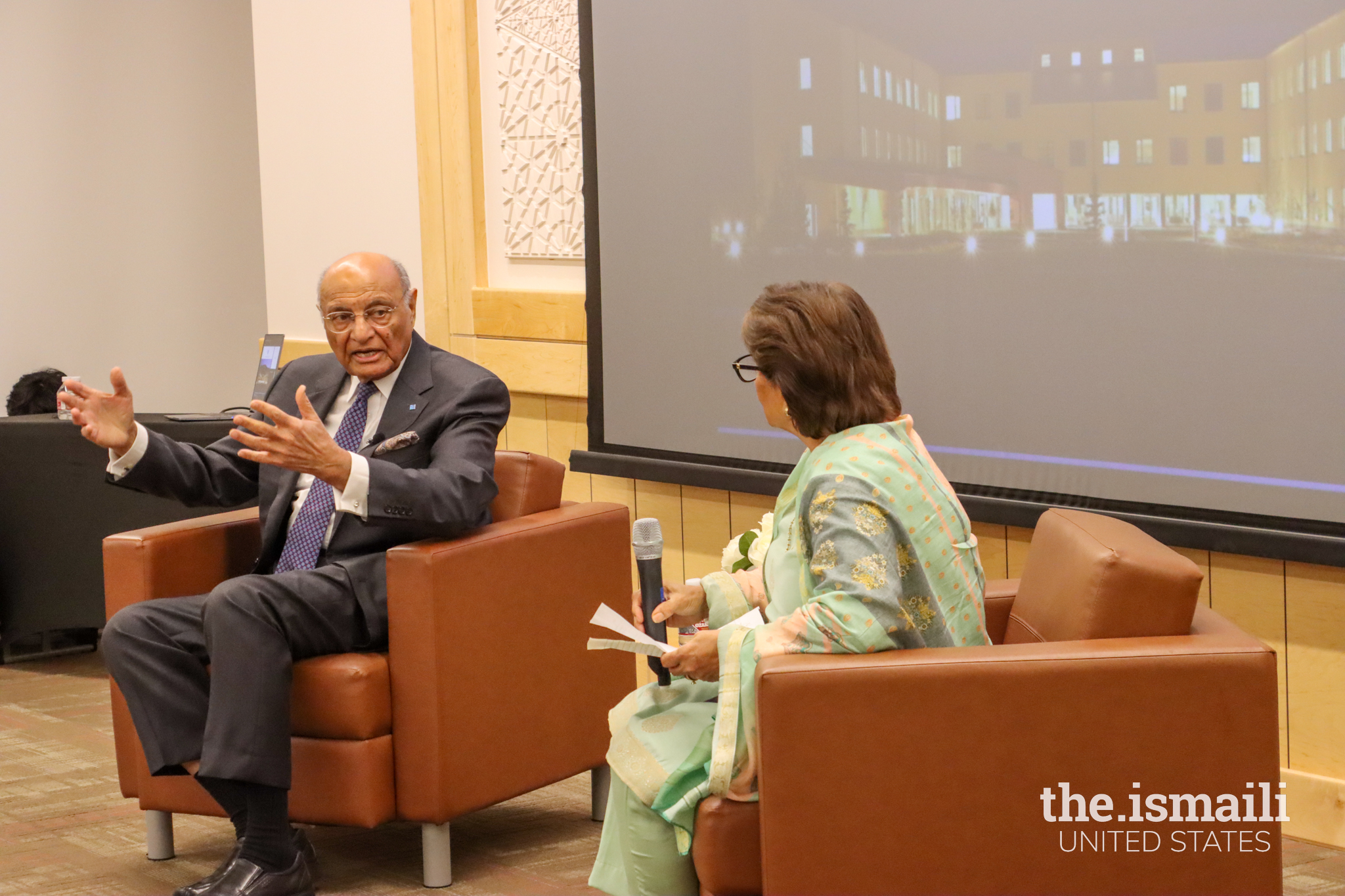
As part of an extensive visit to the United States, Dr. Shamsh Kassim-Lakha (Chairman of the Board of Trustees of the University of Central Asia (UCA) and the Founding President of the Aga Khan University), and Nasir Pirani (Director of Advancement and Public Affairs, UCA), engaged with Jamats across the United States, speaking about Mawlana Hazar Imam’s vision behind the establishment, development, and future of the university.
UCA is a secular, private, not-for-profit institution founded by Hazar Imam in 2000 through a series of international treaties and agreements signed by the Governments of Kyrgyzstan, Tajikistan, Kazakhstan, and the Ismaili Imamat. The founding vision of the University, according to Hazar Imam, is to create an “intellectual space and [provide] resources [that] will help turn the mountains that divide the nations and territories of Central Asia into links that unite its peoples and economies in a shared endeavor to improve their future well-being.”
Outlining the Imam’s aspirations for the University, Dr. Kassim-Lakha reminded the Jamat of the Imam’s emphasis on the relationship between intellect and faith. In connection to this, he explained that investment in education and knowledge acquisition serves a dual purpose. It invites human beings to understand Allah's creation better and to serve that creation.
Dr. Kassim-Lakha noted that education and hope are the most powerful agents of change. It is in this regard that UCA brings the power of knowledge and human ingenuity to confront the many unique challenges faced by marginalized rural high mountain communities in Central Asia.
At the first-ever Convocation of UCA in 2021, the Imam further elaborated upon his hopes for the region:
“UCA defines itself as a ‘research-oriented’ university. Central Asia and its mountain communities face many challenges, including the impacts of climate change, building reliant communities, alleviating poverty through quality economic growth, and advancing technological innovation... Students of world history remind us how Central Asia, a thousand years ago, led the world in cultural and intellectual achievements. This happened because the societies were open to new ideas, open to change, and open to scholars and people from many backgrounds. That kind of openness can again unlock the doors to the future, and allows us to take on the great questions of our time and place."
Speaking enthusiastically about the students, Dr. Kassim-Lakha highlighted how UCA seeks to emulate the best practices of higher institutions of learning in other parts of the world. After graduation, many students pursue a graduate degree at a highly-ranked university elsewhere. For example, Aqila Hassanzada -- born in Afghanistan to parents who became refugees in Pakistan -- initially went to an Aga Khan School and, based on merit, obtained admission into UCA. In overcoming the many obstacles she faced, she was elected President of her graduating class and then attended Brown University.
Nasir Pirani and Waheeda Kara in Austin Jamatkhana.
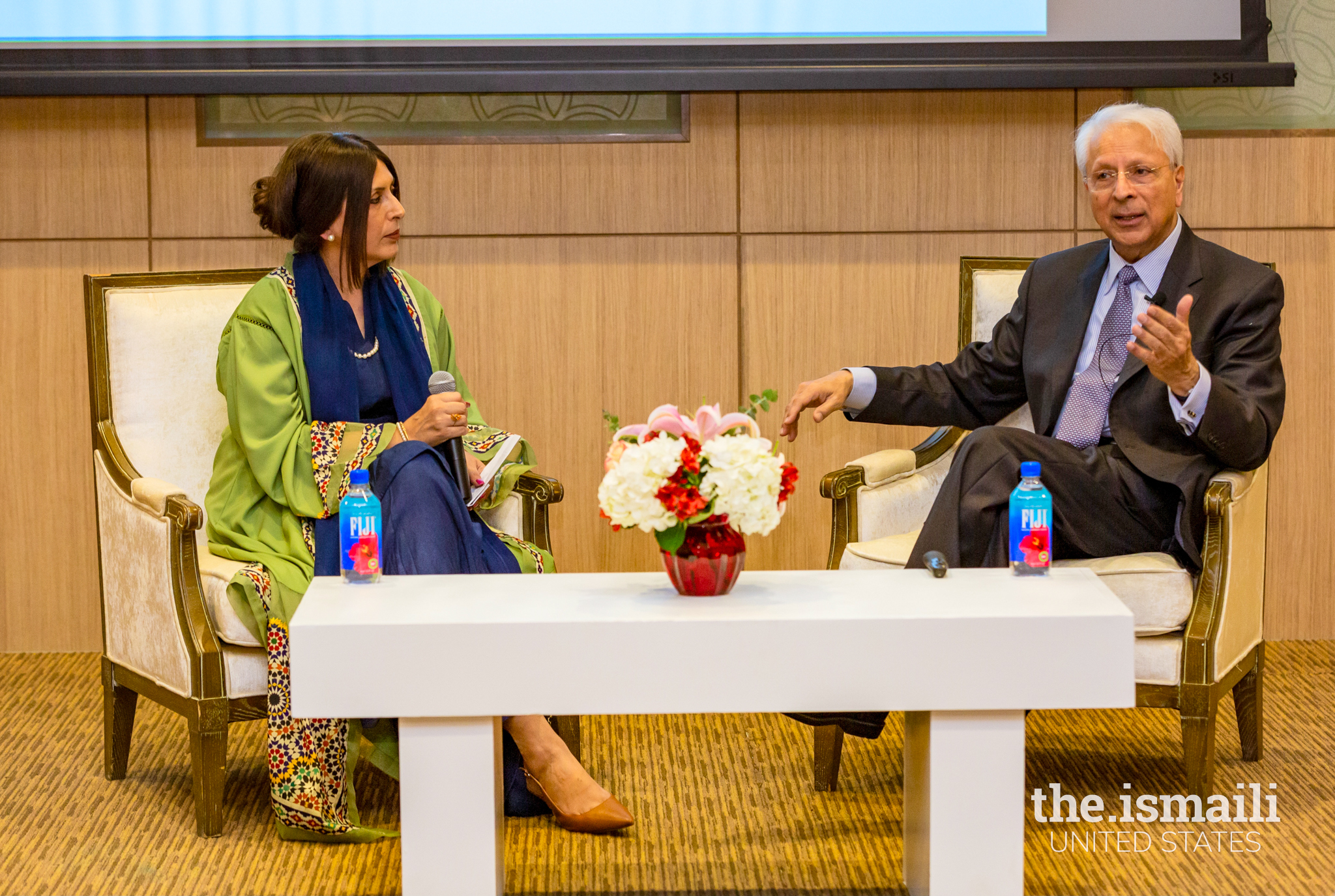
After graduating, 83% of the students return to or stay in Central Asia. Ali Velshi -- an anchor at MSNBC -- spoke about his reflection during his visit to UCA: “One of the things that caught my attention is that students at UCA are not looking to ‘get out’: they want to improve Central Asia. So many times when you come from an isolated area, a university is your ticket out, [the students] here are not looking for a ticket out; they are looking for a ticket up.”
Looking to the future and partnering with global institutions, Dr. Kassim-Lakha said: “It is important we continue to bring new programs. We are working on a full-time Masters's Degree or Executive Masters Degree in Sustainable Development for mountain societies. Furthermore, we are expanding the School of Professional and Continuing Education - SPCE - which focuses on short-cycle academic and vocational training... We are proud to have already 220,000 learners go through our School of Professional and Continuing Education.”
In addition to his time with the wider Jamat, Dr. Kassim-Lakha held an audience with Ismaili professionals on how one can make a global impact through service. When reflecting on his overall visit, he said: “I am very impressed, touched, and humbled by the response of the Jamat across the United States where the young and not-so-young have given us very powerful encouragement. They have been very happy to see the Imam’s work in such different areas.”
Dr. Kassim-Lakha and Nasir Pirani provided much inspiration, and their survey of Mawlana Hazar Imam’s work reminds us that through cooperation, commitment, and humility, we can - each one of us - play a role in serving our communities and improving the quality of life of the most marginalized in our world.
To learn more about the University of Central Asia, please visit:

